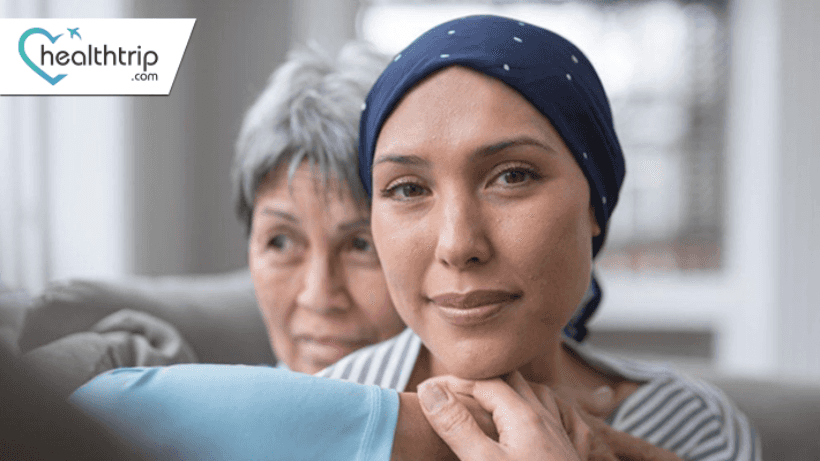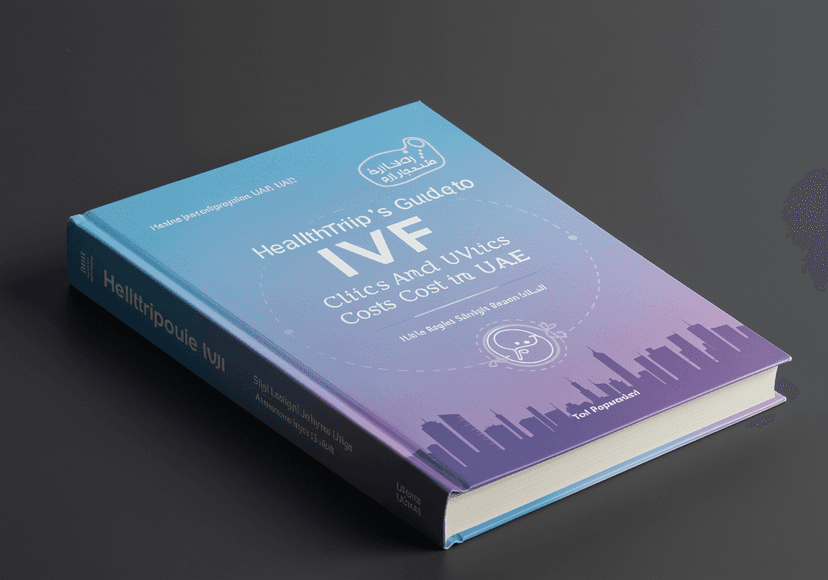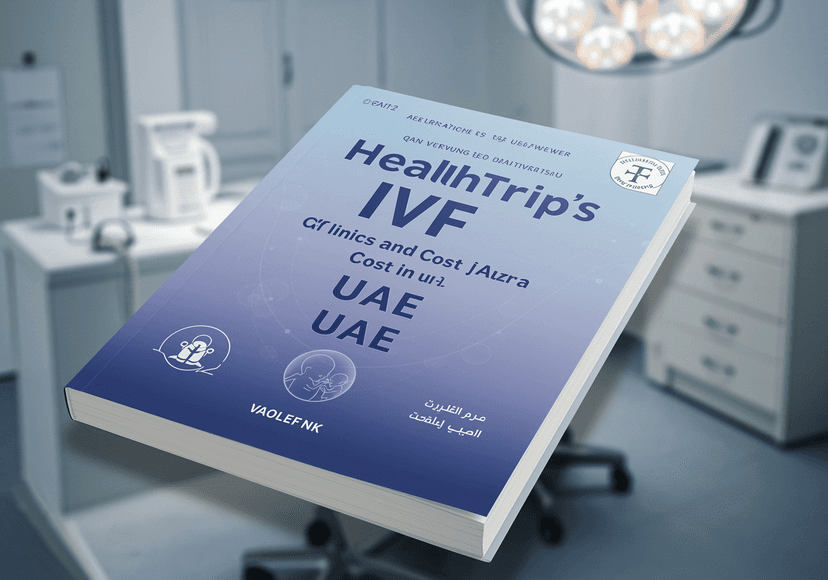
Innovative Metastatic Breast Cancer Treatment in the UAE
02 Nov, 2023
 Healthtrip
HealthtripMetastatic breast cancer, also known as stage IV breast cancer, is a devastating and often incurable form of the disease. It occurs when breast cancer cells spread beyond the breast and nearby lymph nodes to other parts of the body, such as the lungs, liver, bones, or brain. While metastatic breast cancer remains a significant medical challenge worldwide, the United Arab Emirates (UAE) has been at the forefront of pioneering innovative treatment approaches to improve the prognosis and quality of life for patients facing this advanced stage of the disease. In this blog, we will explore some of the cutting-edge treatments and approaches that are making a difference in the UAE.
Understanding Metastatic Breast Cancer
Before delving into the innovative treatments, it's crucial to have a basic understanding of metastatic breast cancer. Unlike localized breast cancer, where the disease is confined to the breast and surrounding lymph nodes, metastatic breast cancer has spread to distant organs. It can affect various areas of the body, making it a complex and challenging condition to treat. The goals of treatment for metastatic breast cancer primarily focus on managing the disease, extending survival, and improving the patient's quality of life.
Most popular procedures in India
Metastatic breast cancer is defined by the spread of cancer cells from the primary breast tumor to other parts of the body, leading to the formation of secondary tumors. These tumors can develop in various organs and tissues, such as the bones, lungs, liver, or brain. The key characteristics of metastatic breast cancer include:
- Metastasis: The hallmark feature of metastatic breast cancer is the presence of distant metastases, distinguishing it from earlier stages where the cancer is localized to the breast or nearby lymph nodes.
- Subtypes: Metastatic breast cancer can be categorized into different subtypes based on the presence or absence of specific receptors on the cancer cells, such as estrogen receptor (ER), progesterone receptor (PR), and human epidermal growth factor receptor 2 (HER2). These subtypes influence treatment choices.
- Chronic Condition: Metastatic breast cancer is typically considered incurable. However, some patients can achieve long periods of remission or stable disease with the right treatments.
Diagnosis and Staging
Diagnosing metastatic breast cancer is a crucial initial step in the treatment journey. In the UAE, procedures for diagnosis and staging are highly advanced and follow international standards:
Wellness Treatments
Give yourself the time to relax
Lowest Prices Guaranteed!

Lowest Prices Guaranteed!
1. Imaging Tests
Advanced imaging techniques, such as MRI, CT scans, PET scans, and bone scans, are utilized to accurately assess the extent of the disease. These procedures help oncologists understand the locations and sizes of metastatic lesions, allowing for more targeted treatment planning.
2. Biopsies
Biopsies are performed to confirm the presence of metastatic breast cancer and identify the specific subtype. In the UAE, the procedures for biopsies are minimally invasive, and samples are obtained using fine-needle aspiration, core needle biopsy, or image-guided biopsy techniques. These procedures are vital for tailoring treatment approaches.
Causes and Risk Factors
Understanding the causes and risk factors associated with metastatic breast cancer is essential for early detection and prevention. Although the precise causes remain elusive, several factors increase the risk of developing metastatic breast cancer:
1. Primary Breast Cancer: A history of early-stage breast cancer increases the risk of developing metastatic breast cancer if the initial cancer was not fully eradicated.
2. Lymph Node Involvement: The presence of cancer in the lymph nodes at the time of initial diagnosis indicates a higher risk of metastatic spread.
3. Tumor Characteristics: Certain tumor features, such as large tumor size, high-grade tumors, and invasive characteristics, can increase the likelihood of metastasis.
4. Hormone Receptor Status: The hormone receptor status of the primary breast cancer (ER and PR status) plays a role in determining the risk of metastasis.
5. HER2 Status: HER2-positive breast cancer is associated with a higher risk of metastasis.
6. Genetic Mutations: Inherited gene mutations, such as BRCA1 and BRCA2, can increase the risk of developing breast cancer, including the metastatic form.
7. Age and Gender: Postmenopausal women and, more rarely, men are at a slightly higher risk of developing metastatic breast cancer.
8. Delayed Diagnosis and Treatment: Late-stage diagnosis or inadequate treatment of early-stage breast cancer can lead to the development of metastatic disease.
9. Lifestyle Factors: Lifestyle choices, such as obesity, alcohol consumption, and lack of physical activity, can contribute to an increased risk of breast cancer.
UAE's Innovative Treatment Approaches
1. Targeted Therapies
One of the remarkable advances in treating metastatic breast cancer is the development of targeted therapies. These drugs are designed to specifically target the unique characteristics of cancer cells, minimizing damage to healthy cells and reducing side effects. In the UAE, oncologists have access to a variety of targeted therapies that can be tailored to a patient's individual cancer profile. This personalized approach enhances treatment efficacy and reduces the burden of side effects.
2. Immunotherapy
Immunotherapy has revolutionized cancer treatment by harnessing the body's immune system to fight cancer. In the UAE, researchers and clinicians are actively exploring the use of immunotherapy for metastatic breast cancer. By stimulating the immune system to recognize and attack cancer cells, immunotherapy offers the potential for durable responses and long-term survival. While more research is needed, the preliminary results are promising.
3. Precision Medicine
Precision medicine, also known as personalized medicine, is an approach that considers a patient's genetic makeup and the specific characteristics of their cancer. This approach allows oncologists in the UAE to tailor treatment regimens to the individual, optimizing the chances of success. By using advanced genomic testing, healthcare professionals can identify specific genetic mutations that drive the cancer and select treatments that target these mutations effectively.
4. Clinical Trials
The UAE actively participates in clinical trials, offering patients access to cutting-edge treatments and therapies before they become widely available. Clinical trials provide a platform for evaluating new drugs, treatment combinations, and novel therapeutic approaches for metastatic breast cancer. By participating in these trials, patients in the UAE can contribute to the advancement of medical science while potentially benefiting from groundbreaking treatments.
5. Multidisciplinary Care
UAE's approach to treating metastatic breast cancer emphasizes a multidisciplinary team of healthcare professionals. This includes medical oncologists, surgical oncologists, radiation oncologists, and support services like palliative care and mental health resources. A collaborative approach ensures that patients receive comprehensive care addressing not only their physical needs but also their emotional and psychological well-being.
6. Supportive Care
In addition to advanced treatments, the UAE places a strong emphasis on providing comprehensive supportive care for metastatic breast cancer patients. This includes palliative care, pain management, psychological support, and resources for managing treatment-related side effects. These services aim to enhance the patient's overall quality of life, even in the face of a serious diagnosis.
Advances in Metastatic Breast Cancer Treatment
The progress in treating metastatic breast cancer is an ongoing journey, with researchers and healthcare professionals in the UAE committed to discovering new approaches and refining existing ones. Here, we will delve deeper into the ongoing efforts and emerging trends that are shaping the landscape of metastatic breast cancer treatment in the UAE.
Emerging Trends and Ongoing Efforts
1. Liquid Biopsies
Liquid biopsies are a non-invasive diagnostic tool that involves analyzing a patient's blood for traces of cancer-related genetic material. This innovative approach enables oncologists in the UAE to monitor the progression of metastatic breast cancer and detect emerging genetic mutations that may impact treatment decisions. Liquid biopsies can also help in tailoring therapy as the disease evolves over time.
2. Advanced Imaging Techniques
Imaging technologies have come a long way in recent years, offering increasingly precise ways to assess the extent of metastatic breast cancer. In the UAE, clinicians have access to state-of-the-art imaging modalities such as positron emission tomography (PET), magnetic resonance imaging (MRI), and computed tomography (CT) scans, allowing for more accurate staging and monitoring of the disease.
3. Combination Therapies
Combination therapies, involving the use of multiple treatment modalities simultaneously or sequentially, are gaining traction in the UAE's approach to metastatic breast cancer. These combinations may include traditional chemotherapy, targeted therapies, and immunotherapy, with the goal of maximizing treatment efficacy while minimizing side effects.
4. Patient Advocacy and Support
The UAE recognizes the importance of empowering patients with metastatic breast cancer through advocacy and support networks. Patient-led organizations, support groups, and educational resources provide patients and their families with valuable information and a sense of community. These initiatives help patients navigate their journey and make informed decisions about their care.
5. Artificial Intelligence (AI)
Artificial intelligence and machine learning are increasingly being used to analyze vast amounts of medical data, leading to more accurate diagnosis and treatment decisions. AI can assist in identifying subtle patterns in patients' data, aiding oncologists in tailoring treatment plans and predicting outcomes more effectively.
Treatment Options for Metastatic Breast Cancer in the UAE
The United Arab Emirates (UAE) is at the forefront of innovative and comprehensive healthcare, including the treatment of metastatic breast cancer. Patients in the UAE have access to a wide range of advanced treatment options and therapies that are tailored to individual needs. Here, we will explore the various treatment modalities available for metastatic breast cancer patients in the UAE.
1. Chemotherapy
Chemotherapy is a well-established treatment for metastatic breast cancer in the UAE. It involves the use of cytotoxic drugs to kill or inhibit the growth of cancer cells. In some cases, chemotherapy may be combined with other treatments to achieve the best possible outcomes. The choice of chemotherapy drugs and regimens is tailored to the patient's specific cancer subtype and overall health.
2. Targeted Therapies
Targeted therapies have revolutionized the treatment of metastatic breast cancer. These drugs are designed to target specific molecules or pathways involved in cancer growth. In the UAE, oncologists utilize targeted therapies based on the individual characteristics of the cancer, including hormone receptor status and HER2 status. Examples of targeted therapies used in the UAE include drugs like Herceptin (trastuzumab) and CDK4/6 inhibitors.
3. Hormone Therapy
Hormone therapy is a cornerstone of treatment for metastatic breast cancer in cases where the cancer is hormone receptor-positive (ER+ or PR+). These therapies aim to block the effects of estrogen or lower its production, as hormone receptors fuel the growth of certain breast cancers. Hormone therapies used in the UAE include aromatase inhibitors, tamoxifen, and fulvestrant.
4. Immunotherapy
Immunotherapy, while still an evolving field in breast cancer treatment, is making significant strides in the UAE. Immunotherapies stimulate the patient's immune system to recognize and attack cancer cells. Drugs like checkpoint inhibitors are being investigated and used in clinical trials, offering promising results for some patients with metastatic breast cancer.
5. Radiation Therapy
Radiation therapy may be used to target specific metastatic lesions that are causing pain or other symptoms. In the UAE, advanced radiation technologies are employed to precisely deliver radiation to tumors while minimizing damage to surrounding healthy tissue.
6. Clinical Trials
Clinical trials are a vital component of metastatic breast cancer treatment in the UAE. Patients are encouraged to participate in clinical trials, which provide access to novel therapies and treatment combinations. Clinical trials are a way to advance the understanding of metastatic breast cancer and explore cutting-edge treatments.
7. Palliative Care
Palliative care is a holistic approach to managing the symptoms and improving the quality of life for patients with metastatic breast cancer. Palliative care specialists in the UAE work in tandem with the oncology team to address pain, side effects, and emotional and psychological well-being.
8. Combination Therapies
In some cases, combination therapies are employed in the UAE to enhance treatment efficacy. This may involve a combination of chemotherapy, targeted therapies, and hormone therapy to target different aspects of the cancer simultaneously.
9. Surgery
While surgery is less common in the treatment of metastatic breast cancer, it may be considered in specific situations, such as for palliative purposes, to address a single metastatic lesion causing significant discomfort
Empowering Metastatic Breast Cancer Patients in the UAE
In the United Arab Emirates, a comprehensive approach to treating metastatic breast cancer extends beyond medical treatments and research. It also includes empowering patients and their families with knowledge, resources, and a supportive community. The role of patient advocacy and holistic care is increasingly recognized as crucial in improving the overall well-being of those affected by metastatic breast cancer.
Patient Advocacy and Support
1. Patient Education
Education is a powerful tool for metastatic breast cancer patients. In the UAE, various organizations and healthcare institutions offer informational resources and workshops to help patients understand their condition, treatment options, and potential side effects. Well-informed patients are better equipped to make decisions about their care.
2. Support Groups
Support groups are invaluable for patients dealing with the emotional and psychological challenges of metastatic breast cancer. These groups provide a safe space for individuals to share their experiences, fears, and triumphs. The UAE hosts a range of support groups, both in-person and online, where patients can connect with others who are on a similar journey.
3. Patient Advocacy Organizations
Patient advocacy organizations play a vital role in raising awareness, providing support, and advocating for the needs of metastatic breast cancer patients in the UAE. These organizations work tirelessly to promote research, improve access to treatment, and enhance the quality of life for those living with the disease. They also advocate for policies that benefit patients.
Holistic Care
1. Palliative Care
Palliative care is an essential component of the treatment approach in the UAE. It focuses on providing relief from the symptoms and suffering associated with metastatic breast cancer. This approach aims to improve the patient's quality of life, manage pain, and address psychological and emotional challenges.
2. Integrative Medicine
The UAE recognizes the value of integrative medicine, which combines conventional medical treatments with complementary therapies like acupuncture, massage, and meditation. These practices can help patients manage side effects, reduce stress, and enhance overall well-being.
Research and Advocacy
1. Patient Participation in Research
Patients in the UAE are encouraged to participate in clinical trials and research studies. Their involvement not only provides them with access to cutting-edge treatments but also contributes to advancing the understanding of metastatic breast cancer and improving treatment options for future generations.
2. Policy Advocacy
Patient advocacy organizations and healthcare professionals in the UAE advocate for policies that benefit metastatic breast cancer patients. This may include improving insurance coverage, reducing treatment costs, and ensuring access to innovative therapies.
Challenges in Metastatic Breast Cancer Treatment
While the United Arab Emirates (UAE) has made significant strides in the treatment of metastatic breast cancer, there are several challenges that persist and require continued attention and innovation:
1. Limited Curative Options
Metastatic breast cancer remains primarily incurable, and the focus is on managing the disease and improving the quality of life. The challenge lies in developing more curative therapies to provide long-term survival for patients.
2. Access to Advanced Therapies
Ensuring equitable access to advanced therapies, especially for patients with limited financial resources, is a challenge. Access to cutting-edge treatments and clinical trials must be expanded to reach a broader population.
3. Resistance to Treatment
Some metastatic breast cancer patients may develop resistance to treatments over time. Finding strategies to overcome resistance or developing new therapies to counter it remains a challenge.
4. Psychological and Emotional Support
Providing comprehensive psychological and emotional support is essential, as living with metastatic breast cancer can be emotionally challenging. Addressing these needs for all patients can be logistically challenging but is crucial for their well-being.
Future Directions in Metastatic Breast Cancer Treatment
The UAE is well-positioned to lead the way in addressing these challenges and shaping the future of metastatic breast cancer treatment. Here are some promising directions:
1. Precision Medicine
Advancements in precision medicine will continue to play a pivotal role in tailoring treatments to the individual characteristics of each patient's cancer. Identifying new genetic mutations and developing therapies to target them is a promising avenue.
2. Immunotherapy
Immunotherapy holds immense potential for metastatic breast cancer. Further research and development of immunotherapeutic approaches, including combination therapies, can help unlock more effective treatments.
3. Early Detection
Efforts to improve early detection and prevention of metastatic breast cancer through screening and genetic testing will be crucial in reducing the burden of advanced-stage disease.
4. Supportive Care
Enhancing palliative care and comprehensive support services will be a key direction, focusing on improving patients' quality of life and psychological well-being throughout their cancer journey.
5. Advocacy and Education
Patient advocacy and education programs will continue to raise awareness, reduce stigma, and ensure that patients are informed about their condition and treatment options.
In conclusion, the United Arab Emirates leads the way in addressing metastatic breast cancer with a holistic, patient-centric approach. Patients in the UAE benefit from a wide array of cutting-edge treatments, including targeted therapies, immunotherapy, and hormone therapy, tailored to individual needs. The commitment to clinical trials, palliative care, and comprehensive support services underlines the UAE's dedication to improving patient outcomes and quality of life. With a focus on innovation and patient well-being, the UAE continues to set a high standard for metastatic breast cancer care, offering hope and better prospects for those dealing with this challenging condition.
Related Blogs

Healthtrip's Guide to IVF Clinics and Costs in UAE
Discover top IVF clinics in the UAE and understand treatment

Healthtrip's Guide to IVF Clinics and Costs in UAE
Discover top IVF clinics in the UAE and understand treatment

Revolutionizing Dialysis Treatment in the UAE
Mediclinic Al Twar Dialysis Center offers advanced dialysis treatment options

Discover Exceptional Healthcare at Mediclinic Parkview Hospital
Get premium healthcare services at Mediclinic Parkview Hospital, a state-of-the-art

Unparalleled Medical Care at Corniche Hospital in UAE
Get access to top-notch medical facilities and expertise at Corniche

Unlock a Healthier You at Cleveland Clinic Abu Dhabi
Discover the latest medical advancements and personalized care at Cleveland










